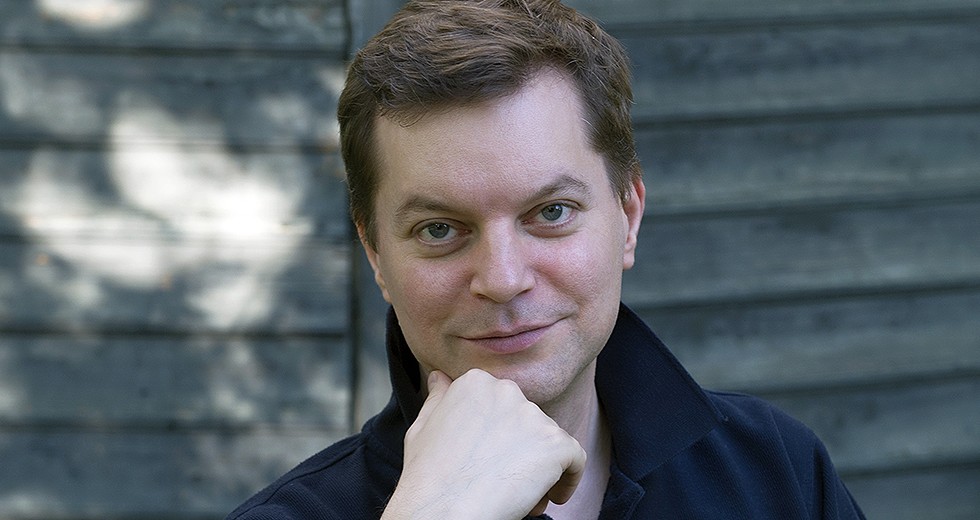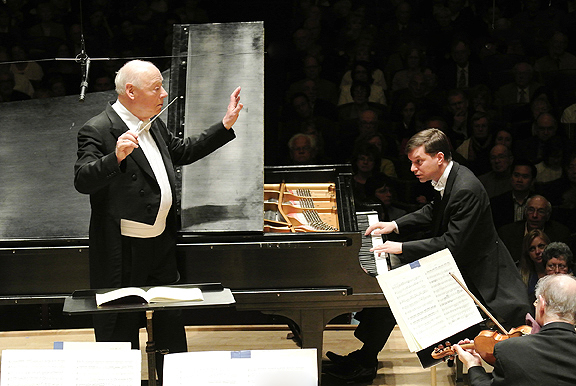
To get a sense of the inquisitive, focused and artistically ambitious nature of pianist Till Fellner, look no further than his grand performance projects. Across two seasons in 2008-10, for example, he presented the complete set of Beethoven’s 32 piano sonatas in 10 cities worldwide, including London, New York, Paris, Tokyo, Vienna and Washington — a total of seven concerts at each site. That body of work, which spans the composer’s life, is one of the supreme creations for keyboard and stands as a defining technical and interpretative challenge for any performer.
Such extended undertakings allow the 43-year-old Austrian pianist to know a composer’s music in a deeper way than would otherwise be possible in typical concertizing. In 2017, he plans to do something similar with the major keyboard works of Franz Schubert from the last six or seven years of the composer’s life, performing them during four recitals across two seasons. Included will be the sonatas, impromptus and the composer’s Wanderer Fantasy. The famed Schubertiade, an annual festival in Hohenems, Austria, has already signed on to be one of the presenters, and Fellner and his manager are seeking other worldwide venues, with Chicago being on their wish list.
Whether that happens, area audiences will have a chance April 28-30 to hear Fellner when he appears as a soloist with the Chicago Symphony Orchestra. He first appeared with the ensemble in 1997 and returned in 2012. In between, he appeared in Orchestra Hall in 1999 with the Mozarteum Orchestra of Salzburg. For that concert, he performed Mozart’s Piano Concerto No. 22 in E-Flat Major, K. 482 — the same piece he will play this time around with the CSO.
“I just love the piece,” Fellner said. “The instrumentation is wonderful. It’s very colorful. It’s the first piano concerto with clarinets in Mozart’s oeuvre, so that’s very special. And the second movement is amazing. It’s not really a lyrical movement. It’s a very passionate movement. And the form is interesting. On one hand, it’s a variation movement and on the other hand, it’s kind a rondo. And there are some episodes just for the woodwinds. In the last movement, there is this beautiful, slow section, the andantino. It’s a wonderful piece.”

Till Fellner performs with the Boston Symphony, under Bernard Haitink, in 2012. For his CSO dates in April, he’ll be reunited with Haitink.| Photo: Stu Rosner/BSO
The concerts will be led by Bernard Haitink, a celebrated conductor with whom Fellner has worked several times, starting in 2010 with the Royal Concertgebouw Orchestra in Amsterdam. He was called in to replace an ailing Maurizio Pollini, and after two or three concerts, Haitink asked him to perform the Piano Concerto No. 22 with the conductor directing the Boston Symphony in 2012. Haitink also was on the podium in December when the pianist made his debut with the vaunted Berlin Philharmonic, a milestone he had long anticipated. “It was, for me, a wonderful experience,” he said. “It’s such a great orchestra, and they were so really friendly and welcoming.”
As with most touring soloists, recitals and orchestral appearances dominate Fellner’s schedule, but he always makes a point to carve out time for duets and chamber music. In part, such concerts allow him to expand his scope of repertoire and to play works he admires, such as Beethoven’s cello sonatas or Schubert’s song cycles. At the same time, it allows him to play with other musicians he respects, and the pianist has developed a coterie of colleagues whom he likes to perform with regularly, including tenor Mark Padmore, cellist Adrian Brendel (son of famed pianist Alfred Brendel) and Georgian violinist Lisa Batiashvili. He has also collaborates frequently with the Belcea Quartet and recently recorded Brahms’ Piano Quintet in F Minor, Op. 34, with the group.
“For me,” he said, “it’s important when you play chamber music that all players should speak with one voice. So I’m always looking for musicians with a similar way of music-making or attitude to music, and it’s not so easy to find such people. Sometimes you are lucky, and you try to play with them again.”
In 2013, Fellner and two of his regular collaborators released a chamber music album of works by the celebrated British composer Harrison Birtwistle. The project began in 2006, when he and Adrian Brendel debuted a short work by Birtwistle that was written for a concert celebrating the 75th birthday of Alfred Brendel, one of his teachers. Birtwistle later expanded the piece into a half-hour work, including sections for baritone, piano and cello. That composition, titled Bogenstrich, became the album’s centerpiece. Also included is a piano trio that Fellner, Adrian Brendel and Batiashvili asked Birtwistle to write for them. “For us, it is a wonderful CD because we premiered the pieces and played them in concert frequently and finally recorded them.”
Fellner likes to mix in some of the music of today alongside works of the past, and he has played new pieces by such other composers as György Kurtág and Helmut Lachenmann. “I’ve always been fascinated by contemporary music,” he said. “And when I say contemporary music, I really mean contemporary music and not music that’s maybe written today but sounds like it was written 100 years ago. I really love avant-garde music and new music, and I find it really exciting and challenging, first to all to listen to it and to play it.” The other big appeal of such music is that it allows him to know and work with the composers who wrote it, something that simply isn’t possible for most composers of the standard piano repertoire.
Typically Fellner comes just once or twice a year to the United States, and he would like to perform here more often. “I really like being there,” he said, “especially in the big cities like New York and Chicago.” But he is not willing to do that if it means putting an undue strain on his schedule. Some touring musicians take on more than 100 concerts annually, but Fellner insists on a more compact number, preferring quality over quantity. “It’s always hard to say no, but sometimes you have to,” he said.
He needs time to practice and learn new works, especially when is preparing for his large projects. In addition, he wants to be able to teach and pursue his non-musical interests. “I’m not so obsessed with playing concerts all the time,” he said. “I like traveling, but I also like to be at home at some point.”
Kyle MacMillan, former classical music critic of the Denver Post, is a Chicago-based arts writer.